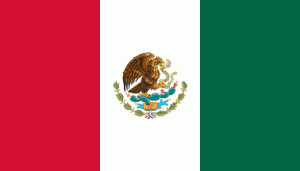 Yesterday, Mexico was invited to enter the TPP negotiations. According to the USTR press release: “The Administration will shortly notify Congress of its intent to include Mexico in the TPP negotiations. The notification will trigger a 90-day consultation period with Congress on U.S. negotiating objectives with respect to Mexico. USTR also will publish a notice in the Federal Register seeking public comments.”
Yesterday, Mexico was invited to enter the TPP negotiations. According to the USTR press release: “The Administration will shortly notify Congress of its intent to include Mexico in the TPP negotiations. The notification will trigger a 90-day consultation period with Congress on U.S. negotiating objectives with respect to Mexico. USTR also will publish a notice in the Federal Register seeking public comments.”
Today, Canadian Prime Minister Harper announced that Canada will join the TPP negotiations as well, (see Reuters story). Harper said that “Opening new markets and creating new business opportunities leads to jobs, growth and long-term prosperity for all Canadians.”
For an overview of the difference between TPP obligations, NAFTA obligations, and the domestic laws of Mexico and Canada, please see a blog on the subject written last April by then-PIJIP-fellow Carrie Sager.
Sean Flynn said in a press statement that “Bringing Mexico into the TPP negotiation will make the negotiation of the intellectual property chapter that much harder… the Mexican Senate rejected [ACTA] in an overwhelming vote while it was being negotiated and there is no indication that it will be asked to change its vote now that ACTA is finished. The U.S. position in TPP is asking for disciplines on domestic intellectual property laws far in excess of ACTA, which have virtually no chance of being accepted in that Mexico.”
The Canadian press reports that Canada is still negotiating its entry into the TPP, with an announcement expected this morning: “Sources suggest Canada and Mexico were invited into the TPP talks by the existing nine members late last week. Mexico accepted immediately and Monday morning U.S. President Barack Obama extended a formal invitation to join the potentially massive new trade bloc. Canada was slower to accept and late Sunday, officials were still saying that there would be no announcement on the TPP this week. One veteran trade observer suggested there may have been conditions Mr. Harper found unpalatable but neither the office of Ed Fast, the trade minister, or the Prime Minister’s Office would offer details of any potential irritants. That position softened Monday, following the Mexican announcement, and sources in Los Cabos said a similar deal for Canada is expected Tuesday morning.”




